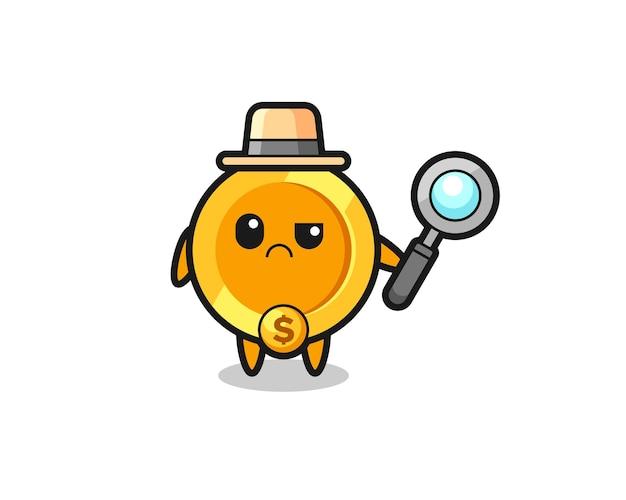In the bustling bazaar of the gig economy, where everyone is juggling flaming torches of side hustles and freelance gigs, managing personal finances can often feel like taming a wild, overly-caffeinated squirrel. As more and more people leap into this dynamic market, swapping the traditional nine-to-five for a smorgasbord of diverse income streams, navigating the uncharted waters of irregular paychecks and unpredictable expenses is becoming a crucial skill. Fear not, dear reader, for this article is your trusty guide, packed with tools and tips to ensure that your finances stay as balanced and harmonious as a cat on a Roomba. So, grab your calculator and your sense of humor, because it’s time to dive into the whirling vortex of personal finance in the gig economy, where every penny saved is a penny that might get you a latte between gigs.
Taming the Freelance Beast How to Budget When Your Income Is Playing Hide and Seek
Freelancers, gather ’round! If your months often resemble a roller-coaster ride with a surprise loop-de-loop at the end, you’re not alone. Welcome to the world where your income could be dubbed “The Great Houdini!” One month, you’re rolling in it, and the next, you’re counting coins found in the couch! Budgeting with this kind of paycheck can feel like trying to nail jelly to a wall. But fear not, there’s power in knowing your monster well. Start by creating two budgets: essential expenses (things you can’t live without like rent and snacks—emphasis on snacks!) and non-essential outings (fancy hot air balloon rides, obscure gym membership, or that third Netflix account). When your income’s a no-show, stick to the essentials. And when you’re flush? Live a little, but keep that adventurous budget in check.
Now, let’s talk about the treasure chest known as savings! Yes, that’s right. Picture it as your financial safety net or a steady ship in this wild sea. Funnel some money into savings accounts or even a squirrel-friendly coffee jar—whatever helps you stash. Here’s a simple way to divvy it up:
- Emergency Fund: Aim for 3-6 months of living expenses.
- Sinking Funds: For those predictable future expenses—hello, taxes!
- Splurge Fund: Save up guilt-free for that personal laser tag arena you’ve always dreamed of.
| Expense Type | Monthly Allocation (%) |
|---|---|
| Essentials | 50% |
| Savings | 20% |
| Future Fun | 20% |
| Miscellaneous | 10% |
Adapt as your freelancing adventure unfolds, and remember: The key to taming your freelancing beast lies in flexibility, clarity, and maybe a dash of humor to seasoning your financial stew!

The Dollar Detective Decoding Income Streams and Taxes Without Losing Your Mind
Alright, gig economy adventurers, let’s crack open the treasure chest of personal finance in the land of side hustles and freelance fun. With terms like “quarterly taxes” and ”diversified income” swirling like a profusion of Instagram filters, staying afloat may feel like a juggling act on a unicycle. But fear not! Here are your trusty tools, like a financial Swiss Army knife, to manage this circus. First, get cozy with a budgeting app, your new best friend. From Mint to PocketGuard, there’s an app that’ll serenade your expenses into harmony. Next, it’s time to face the numbers: track those dollars like a detective. Use spreadsheets or, if you’re fancy, accounting software like QuickBooks to crack the case. And remember, saving isn’t just for our calorie intake—aim to save at least 20% of your income for rainy days or an impromptu tap-dance class.
Now, let’s decipher the tax code like a cryptic crossword puzzle. Gig work can bring some sneaky tax surprises. Fear not, your strategy involves playing your cards right. Consider these gems:
- Separate Bank Account: Keep your income streams in line and make tax time a breeze.
- Expense Tracking: Write off those legitimate business expenses. Yes, even that fancy pen.
- Quarterly Tax Payments: They’re not as scary as they sound once you get the hang of it!
| Tool | Purpose |
|---|---|
| Mint | Budgeting |
| QuickBooks | Accounting |
| Evernote | Note Keeping |
Armed with these savvy solutions and a sprinkle of humor, navigating your freelance finances will feel less like a daunting performance and more like a show-stopping dance number. Now, go forth and keep those digits dancing toward a wealthier tomorrow!

Savings Schmovings How to Build an Emergency Fund Even When You’re Paid in Pizza
Living in a gig economy often means getting creative with savings, especially when you’re paid in things “less traditional” than cash. Your paycheck might look more like a pizza party, but you can still slice up something for a rainy day. Start with tiny goals that feel doable. For instance, if you earn tips, stash away that extra cash or set aside a portion of your gig earnings before treating yourself to that extra cheese. It’s not about the amount—it’s about the habit. Remember, those extra toppings aren’t going towards your bank account!
Think of savings like toppings on a pizza: the more, the tastier. Try these ideas to get started:
- Automate: Set up a system to automatically divert small amounts into a savings account each time your gig paycheck hits your account. You won’t even miss it!
- Round-Up Apps: Use smartphone apps that round up your purchases to the nearest dollar and save the change. It’s like picking up spare dough on your way home.
- Spare Change: Collect your spare change at the end of each day—coins can add up faster than you’d think!
| Tip | Short Description |
|---|---|
| Slice and Save | Divert slices of your earnings into savings before indulging. |
| Appasitively Easy | Leverage apps to save changes for effortless saving. |

Investing While Adulting Retirement Plans That Make Your Future Self High Five You
Working in the gig economy makes things exciting—no boss breathing down your neck and the freedom to work in pajamas. But when it comes to saving for retirement, you’ve got to take matters into your own hands. Say hello to retirement plans that fit the freelancing lifestyle like a glove. You can start with Individual Retirement Accounts (IRAs) or dive into Solo 401(k)s if you’re feeling ambitious. These aren’t just stuffy old accounts; they’re your future’s best friends. Choose your plan like you choose your projects—wisely and with a little wiggle room for a spontaneous taco Tuesday investment drop.
- Robo-Advisors: They may sound like characters from a sci-fi movie, but these digital platforms can handle the boring stuff like portfolio balancing while you focus on booking gigs.
- Index Funds: Think of these as the delicious trail mix of the investment world—diverse, yet uncomplicated.
- Budgeting Apps: Keep track of your expenses better than keeping tabs on your favorite TV series. This way, you’ll have more to squirrel away for the days when gig work is just a memory.
| Option | Benefits |
|---|---|
| Traditional IRA | Tax-deductible contributions, Withdraw at 59½ |
| Roth IRA | Tax-free withdrawals, Contributions anytime |
| Solo 401(k) | High contribution limits, Includes spouse if involved |
Q&A
Q&A:
Q1: What exactly is the “gig economy,” and how does it affect my finances?
A1: Ah, the gig economy—where you’re the CEO of your own work life but also the janitor, accountant, and lunch lady. The gig economy refers to a labor market where short-term contracts, freelance work, and side hustles reign supreme. It’s like a buffet for jobs, where you can stack your plate with a little Uber driving, sprinkle on some freelance writing, and finish off with a dollop of dog walking. Financially, this means more control but also more responsibility. You have to manage fluctuating income streams, unpredictable cash flow, and the very scary reality that sick leave is just you curled up with a cup of tea, watching daytime TV, unpaid.
Q2: What tools can help those in the gig economy manage their finances effectively?
A2: Thank goodness it’s not the Stone Age, right? We have apps! Loads of them. First, there’s Mint for all your budgeting needs—because who knew that coffee shop WiFi and pastries weren’t free once you start counting pennies? Then you have QuickBooks Self-Employed to help you track every invoice like a starved detective tailing his next meal ticket. And don’t forget about Cushion, which helps manage those pesky overdraft fees, because nothing says “I’m a money-savvy adult” like having your bank tell you you’re significantly overdrawn.
Q3: Any budgeting tips for a gig worker like me who lives on coffee and optimism?
A3: Absolutely! Start by distinguishing between your ‘needs’ and your ‘wants.’ No, you don’t need that artisanal matcha latte even if Instagram suggests otherwise. Create an emergency fund for when your three-month freelance stint suddenly becomes a three-week holiday in “SnapBackToReality-Land.” Also, practice the 50/30/20 rule: 50% of your earnings go to essentials, 30% toward discretionary spending (because happiness does matter), and 20% for savings and paying off debt. Remember, ramen may seem like a budget-friendly meal choice, but it’s hard to write a bestseller while suffering from sodium overload.
Q4: How can gig workers save for retirement without a traditional 401(k) plan?
A4: A sobering question indeed, because we all want a financially secure future—and possibly the ability to retire to a beach hut in Bali, praise be! Consider opening an IRA or Roth IRA to start building your nest egg. Look into SEP IRAs if you’re making enough that coffee isn’t your primary food group anymore. Automation is your friend here: set up automatic transfers so your retirement fund grows even as you’re busy hustling. And just keep chanting, “Compound interest is my friend”—preferably while looking optimistic at your bank statements.
Q5: What’s one last tip for a gig worker to keep their finances healthy?
A5: Treat your gig work like a business, because it is! Keep meticulous records of your income and expenses, and when tax season comes, laugh in the face of chaos like a financial superhero planning to defeat the dreaded IRS dragon. Make sure to separate your business and personal finances, unless you want your accountant to collapse into a fit of dramatic sighs. And above all, remember to take breaks and enjoy life—the gig economy might be all about hustle, but you’re no good to anyone burnout stylin’. Also, when in doubt, coffee.
Closing Remarks
As we wrap up our deep dive into the kaleidoscopic world of personal finance in the gig economy, it’s clear that juggling multiple income streams can feel a bit like being a financial acrobat—minus the safety net and with way fewer sequins. But fear not, brave freelance warriors! Armed with digital tools, budgeting apps, and a sprinkle of fiscal savvy, you’re well-equipped to tackle these challenges head-on. Remember, the goal isn’t just to keep our financial ships afloat; it’s to sail them confidently toward our dreams, dodging the occasional iceberg of impulse buys and treacherous seas of taxes. So, tighten your budgeting belt, keep a weather eye on your expenses, and navigate the gig economy with wit and wisdom at your helm. Who knows, with a bit of practice, you might just find that managing your gig income is less an act of contortion and more a dance of delightful possibility!


